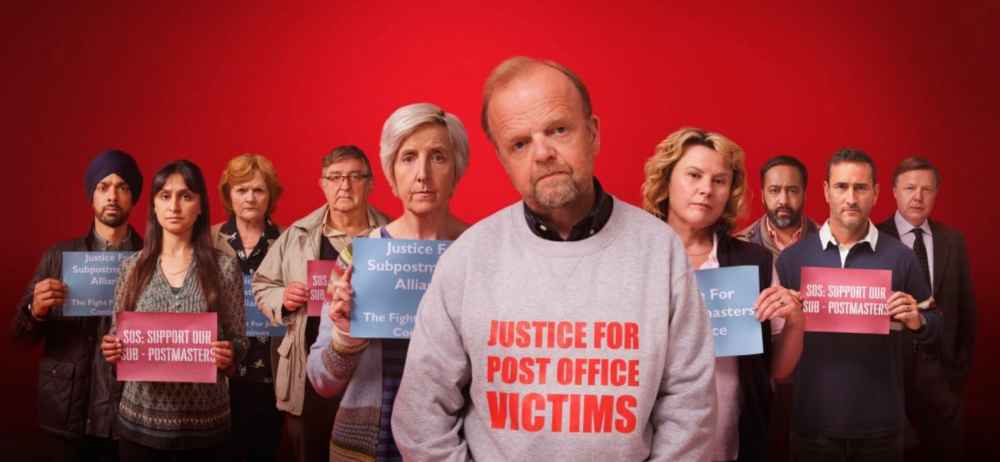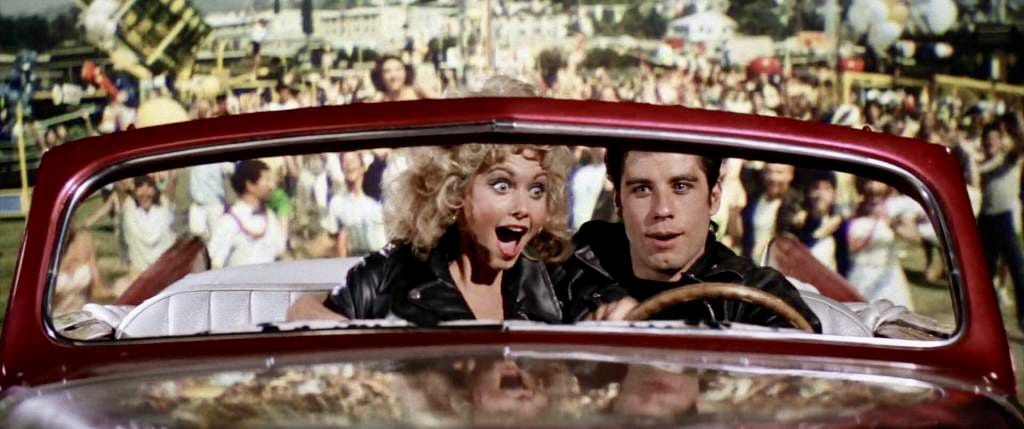By, Lauren Durose, Film & TV Co-Deputy Editor
This ITV drama explores the implementation of the horizon technology in Post Offices up and down the UK that led to one of the largest miscarriages of justice in British history. It took over four years to write and spans the twenty-year time period in which the sub-postmasters and postmistresses had their livelihoods destroyed. With over seven hundred wrongful convictions and bankruptcies, alongside the deaths and suicides that occurred as a result of the stress and emotional damage, the show portrays the true depth of the injustice.
Toby Jones delivers a memorable performance as Alan Bates, the postmaster who became a spokesperson for all those that were wronged. Jones' depiction articulates the frustration that was felt by so many involved, he personifies the strength that was necessary for the group to come together and fight for the justice that they knew they were entitled to. We see him become a leader and an activist as he refuses to accept the Post Office's wilful ignorance and utter incompetence surrounding the matter. Whilst Jones’ performance is powerful and centres the series, it only serves to emphasise how long the real Alan Bates has been fighting for justice. He continues to do so now and promises to endure until the original 500 or so sub postmasters and mistresses that participated in the show’s namesake court case, receive their compensation.
Alongside Jones, is Monica Dolan who assumes the role of Jo Hamilton. Dolan’s performance is the one I think truly helps to portray the extent of injustice. A woman who continually asked for help, paid the entirety of her life savings as recompense for an issue she was manipulated into believing was her own fault, and was still wrongfully convicted despite a complete lack of evidence that she had ever committed a crime. Dolan conveys an incredibly likeable character, portraying a personability that instantly has audiences appalled at her treatment. Equally, Will Mellor as Lee Castleton, Julie Hesmondhalgh as Suzanne Sercombe and Krupa Pattani as Saman Kaur ae only a few of the ensemble whose characterisation is so vivid that as an audience, there is no choice but to empathise.

The show has had quite the impact. The coverage that the case is finally receiving has led to the promise of government action, there are hopes that both the Post Office and Fujitsu (the company who created and owned the faulty system) will be held sufficiently accountable. Paula Vennels, the woman in charge when these issues first started occurring, was somehow awarded a CBE in 2019. Audiences were horrified that the government had been so oblivious as to award a woman who had been so prolific in ignoring the pleas of the postmasters that said something was wrong. There was a petition to remove said CBE from her, a petition that before the programme begun had less than 10,000 signatures, by the end of the four episodes more than one million people had signed and voiced their disgust. The petition and public discussion have forced Vennels to succumb, and hand her award back.
The final episode sees the 550 (or so) postmasters who participated in the Mr Bates vs The Post Office case settling 54 million pounds, after they ran out of investment to keep fighting the government-owned corporation. After paying back investors and legal fees, there was 12 million to split between them – that’s roughly twenty thousand each. This compensation was menial and nothing in comparison to what was taken from them and kept in the Post Offices coffers. Many were unhappy with this outcome, despite the lawyers attempting to convince them that this was a win. As the sub-postmasters and mistresses went their separate ways, we see the final conversation between Bates and Hamilton (of the series); Jones’ character implores Hamilton to use this as legal precedence to have her conviction overturned.
Jo does as Alan encouraged and ultimately is proved innocent. In the scene in which she comes out of the court room, smile as wide as humanly possible and overwhelmed with the knowledge that her guiltlessness is finally known, it feels that this might be the first time we see her in a true and untainted state of happiness. It was in this moment, when we see the pride and joy and utter relief of Jo, that I found myself also overcome with emotion.

It is this that the ITV series does best; not just highlighting the tragic miscarriage of justice that ordinary people were forced to face, but in conveying the emotion behind it all. In doing so, so effectively, so many of the audience were thrust into a sense of activism, calling for compensation and an apology. It truly feels that this series may have been the turning point for this horrific occurrence, it has instigated a call to action that has helped provide a sense of hope (and a reminder that morality can continue to exist within our society).
This story is profound and powerful, it is a must watch for everyone.
What did you think of Mr Bates vs. The Post Office?









